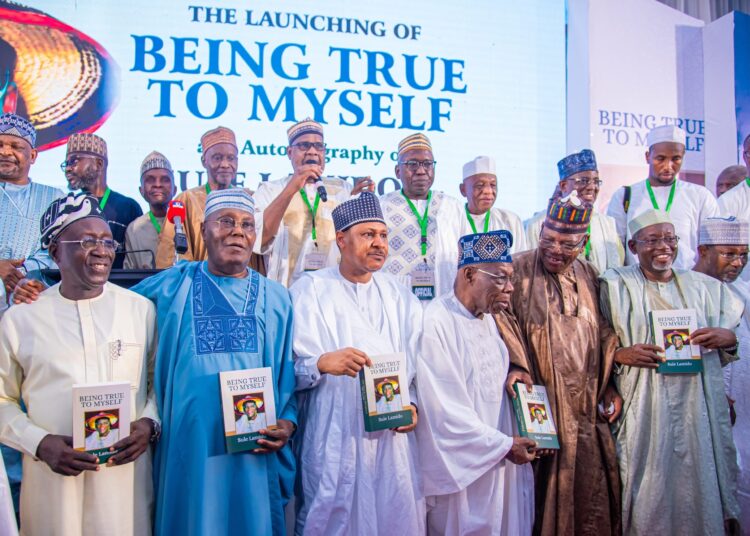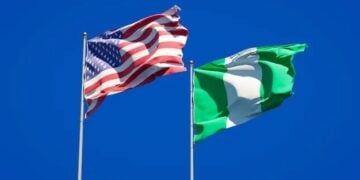Former President Olusegun Obasanjo has said that Nigeria’s leaders, both past and present, still have unfinished work in ensuring the country reaches its full potential.
Obasanjo made the remark yesterday in Abuja while speaking at the public presentation of the autobiography of former Jigawa State Governor and elder statesman, Alhaji Sule Lamido.
The book, titled, “Being True to Myself,” chronicles Lamido’s life and political journey.
Obasanjo, who wrote the foreword to the book, said he believed that after contributing the foreword, he would be excused from further participation—but Lamido had persuaded him to attend in person, even if it meant cutting short an international engagement.
“I thought that after I wrote the foreword to your magnificent book, you would have excused me from any further ordeal,” Obasanjo said, drawing laughter from the audience. “But being who you are, you got me here—even though I had to cut short my event abroad, where I was looking into the situation in the Democratic Republic of the Congo (DRC).”
The former President recalled how Lamido was appointed Foreign Affairs Minister in 1999, explaining that the initial nominee had declined the position, giving Obasanjo the discretion to choose a replacement.
“I selected Sule Lamido because I saw him as the closest to the individual who had declined,” he said.
He recounted a conversation between Lamido and then British Foreign Secretary, Robin Cook, who had questioned how well the President knew Lamido before appointing him. Lamido’s witty response, Obasanjo noted, left Cook wondering whether the President was “a crazy fool or a very clever guy.”
“Well, it’s up to Sule to decide which one I was,” Obasanjo added.
He also praised Lamido’s integrity and independence, particularly his refusal to submit an undated resignation letter—an accountability measure Obasanjo had requested from all his ministers.
“Sule said to me, ‘You appointed me—I didn’t ask you to. If you find me unworthy, just give me five minutes and I will resign,’” Obasanjo recalled. “I accepted that. And indeed, I never had cause to ask him to resign. He performed admirably.”
Obasanjo credited Lamido with playing a vital role in restoring Nigeria’s international image following years of military rule, noting his contributions as Foreign Minister.
“Sule was our face to the world. He did a magnificent job,” Obasanjo said. “Within three years, the Queen of Britain came to Nigeria for CHOGM. That was a clear signal that Nigeria had been accepted again.”
The former President also reflected on Lamido’s time as Governor of Jigawa State, noting that his visits to the state revealed a leader still deeply engaged in development and national dialogue.
“He showed me what he was doing. We discussed not only state issues but also national and foreign affairs. I can say, without any shred of doubt, that Sule Lamido performed adequately as Governor,” he said.
Obasanjo concluded his remarks with a call for sustained nation-building, reminding Lamido and other elder statesmen that their work is far from done.
“The Nigeria you and I worked for—we haven’t gotten there yet,” he said. “And I believe it is the responsibility of all of us to ensure we reach the Nigeria of our dreams. Our job is not finished until it is finished.”
We’ve got the edge. Get real-time reports, breaking scoops, and exclusive angles delivered straight to your phone. Don’t settle for stale news. Join LEADERSHIP NEWS on WhatsApp for 24/7 updates →
Join Our WhatsApp Channel










